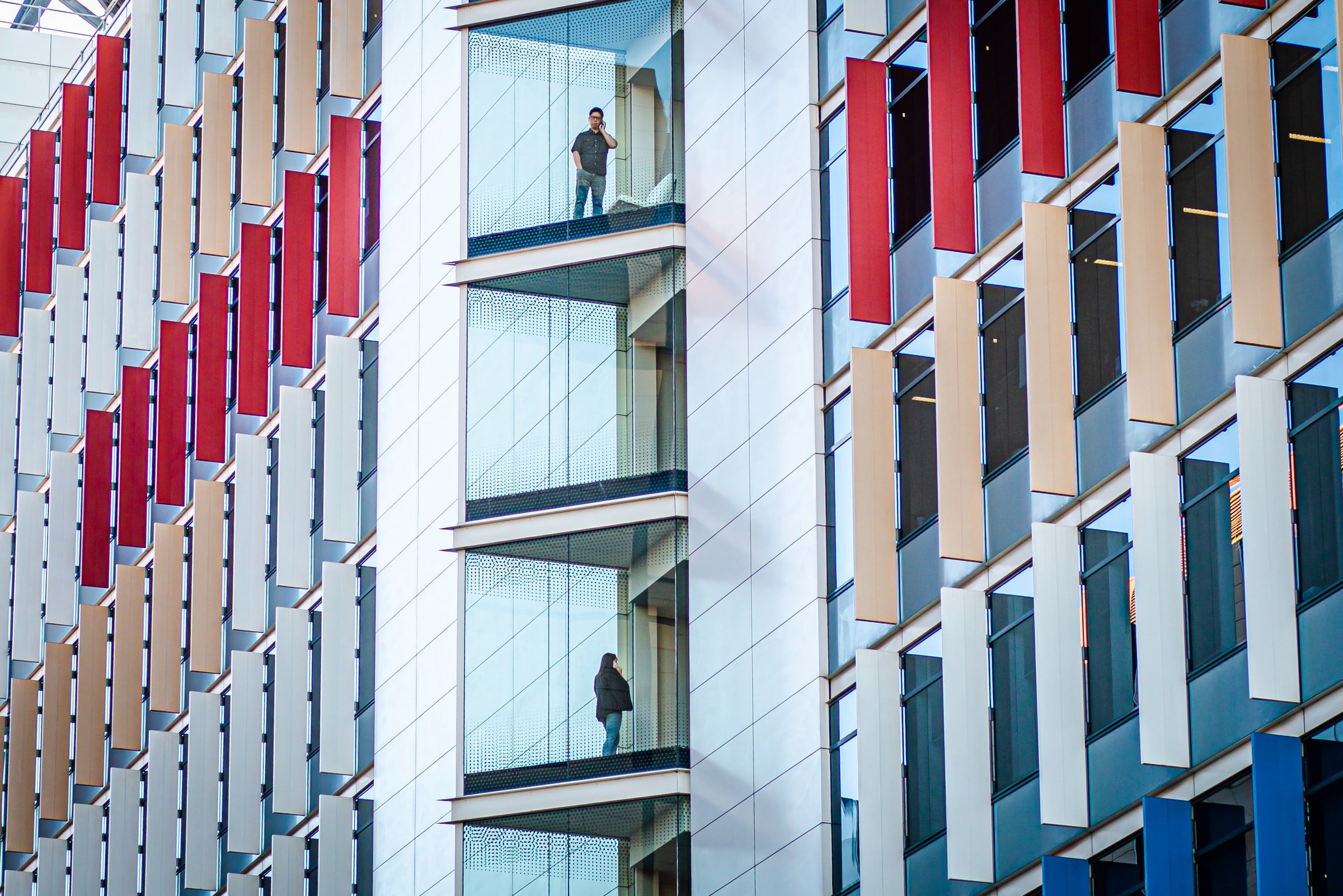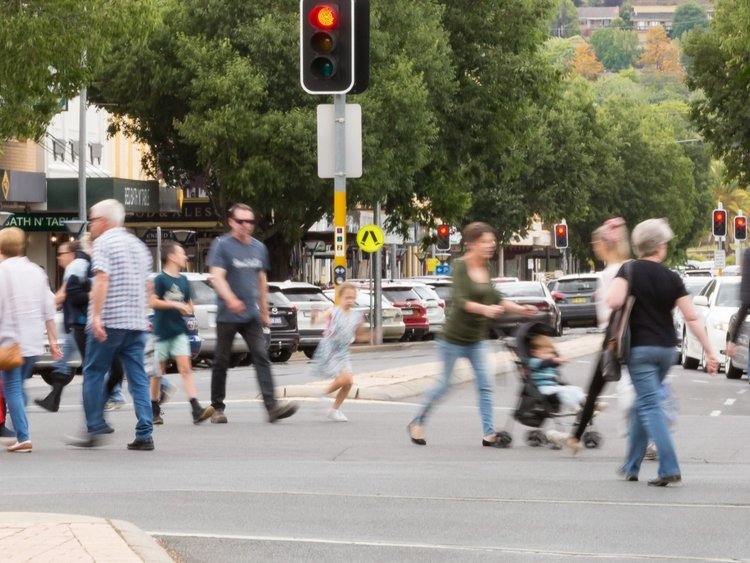
Festival of urbanism 2022

Designers in Government Showcase and Awards Ceremony
Join us for an evening of design excellence with the Designers in Government Showcase and the announcement of the winners of the Australian Urban Design Awards.
The showcase will be followed by a livestream of the Australian Urban Design Awards Ceremony. The Awards are co-convened by the Planning Institute of Australia, the Australian Institute of Architects and the Australian Institute of Landscape Architects, with the support of five peak organizations servicing the sector.

Food Futures in Urban Places: Solidarity, Circularity and Transition
Climate-change threatens peri-urban agriculture and food security. This session explores innovative social practices that secure food futures: in Sydney an evolving system connecting urban organic waste to peri-urban agriculture, and in Bologna Italy cooperatives in emerging food solidarity economies. Each case demonstrates how trusting relationships ensure local food futures in urban places.

Australia’s future housing system: Renovate or detonate?
Australia’s housing system is in crisis, and recent policy interventions have ranged from ineffective to counterproductive. From the deepening divide between home owners and renters, to unsustainable patterns of residential development and escalating climate risk – Australia’s housing policy framework needs an urgent reset. With new national and state housing initiatives on the table, this panel will debate whether it is possible to ‘renovate’ Australia’s housing system or whether radical change is needed to bring about a more inclusive and sustainable future.

Future Infrastructure: Innovation, governance and sustainable transitions
The technology for transition to a zero net carbon future already exists – across transportation infrastructure, energy, and waste systems – but entrenched barriers to widespread adoption remain. What governance models are needed to transform systems of infrastructure provision and distribution, ensuring equitable access to sustainable transitions?

Platform urbanism? From ‘smart’ to autonomous city futures
Cities and regions across the world have experienced profound disruption from the rise of digital platforms across all areas of urban life. Understood within the wider prism of technological innovation and emerging forms of digital automation across the urban sector, this session engages critically with notions of the ‘smart city’. Will the future city be dictated by ‘techno-capitalist’ firms or are ‘smart’ and socially accountable forms of urban governance still possible?

Saving Sydney: Ideas for the future metropolis
In this event inspired by Elizabeth Farrelly’s acclaimed book ‘Killing Sydney’ (Picador, 2021), we challenged creative thinkers, activists, and scholars from a range of disciplines to share their top-of-the-list solutions. Convened by prominent columnist, architectural critic and author Dr Farrelly, we invite you to join this frank and fearless conversation about Sydney’s future.

Ethical futures? Towards systemic urban integrity and the ‘just city’
With a new Integrity Commission pending at the national level, and state level investigations continuing to expose corrupt behaviours in planning and development processes; this session asks how to improve decision making cultures and systems across the built environment professions? More broadly, how might urban governance processes adopt wider notions of environmental ethics and social justice in confronting decisions about the future city?

From Plans to Places: a guided tour of public spaces in Sydney
Major redevelopments frequently promise to deliver new or enhanced public space when negotiating planning approvals. But the passage from planning approval to final delivery can often involve twists and turns, as private and public interests continue to be renegotiated. On this guided tour, you’ll visit three recently completed redevelopments with newly created public spaces near Central, comparing the futures that were promised with the places that were delivered. Along the way, we’ll discuss what these cases mean for the provision of future public spaces in Sydney.

Footscray: Smart city for social cohesion
Footscray: Smart city for social cohesion is co-organised with Monash Association of Planning Students (MAPS) and Maribyrnong City Council
What makes a socially cohesive city? Footscray has long fostered a sense of community with well-used public spaces. The Smart City for Social Cohesion program aims to enhance this through data-driven urban planning. We also see traditional approaches at play in shaping the Footscray University Town, relying on people’s lived experiences and perspectives. Join the Monash Association for Planning Students as we tour Footscray by foot.

Resilience and recovery: Urbanism in the time of disaster
If the last three years of fire, plague and flood have taught us anything, the future will require us to respond to extreme events in our cities with increasing frequency. What role does the design of the physical and social infrastructure of our cities play in helping us respond? In this discussion we will hear from designers, artists and councils as they paint a picture of a responsive, citizen-led, altruistic future that enables us to respond to these disasters.

Reimagining Regional Growth
Fifty years after former Prime Minister Gough Whitlam’s short-lived attempts to foster decentralisation, this event, held in Albury, one of Whitlam’s flagship National Growth Centres, examines the prospects for future growth in regional Australia. With a diverse panel of regional leaders and experts, the discussion will canvas opportunities and risks confronting communities beyond the major cities and the priorities for contemporary government intervention.

Economising the Economy
There is a pressing need to reframe and restructure market-based economies to respond to manifold social and economic challenges including the rise of job informality, deindustrialization, and decarbonization, among others. This session will explore alternative economic models and spaces that rethink what our economy will look like in a post-capitalist world and discuss the implications for the future material and social fabric of cities.
This event has been co-organised with the Alliance for Praxis Research (APR)

Future Transport: How autonomous vehicles and smart mobility will transform Australian cities
Online Event
From horse-drawn carriages to automobiles and mass transit, new transport technologies have historically transformed and disrupted cities. Today, autonomous vehicles and other forms of smart transport technology are predicted to remake transport networks and contribute to a new round of urban expansion. Are Australian cities preparing for a driverless future? This session explores how autonomous vehicles may impact Australian cities and how governments are preparing to address the potential challenges and opportunities.

Cities in a Sunburnt Country - a panel of co-authors
Online Event
This new book considers how Australians have provided water and sewerage for growing, sprawling urban centres. In this land of drought and flooding rains, we may need to rethink water use strategies, including embracing centuries of Aboriginal knowledge, seeing water as a resource to be conserved, rather than wasted or exploited.

Filming the Future City - Film Competition and Documentary Film Screening
Join the screening of short-listed films and the announcement of the competition winners at the second annual Festival of Urbanism short film competition. This event is followed by a curated screening of archival and contemporary urban planning documentary films and followed by critical reflection on their role in reframing the future of cities from planning and film scholars.

New Industrial Urbanism: Designing Places for Production
Online Event
Prof. Tali Hatuka explores the evolving and future relationships between cities and places of production, focusing on the spatial implications of integrating contemporary advanced manufacturing into the city. Looking ahead to the quest to make cities more competitive and resilient, her new book New Industrial Urbanism (co-authored with Prof. Ben Joseph) provides lessons from around the world to reconsider the ways in which industry creates places, sustains jobs, and supports environmental sustainability in our cities.

The Future of Work: Should We Plan for the Post-work City?
Online Event
Some claim the pandemic has ushered in a "post work" era when the concepts of work, workplace, and commute are being remade. Digital technologies, artificial intelligence, co-creation and multi-locational work sites are creating new spaces for work and encouraging the merging of work and non-work spaces like never before. These changes are also hastening the development of unequal labour landscapes across our cities. This panel explores the impact of the "post-work" condition on how we work in, move through, and engage in the city.

A Decarbonised Built Environment 2030: Overcoming the Barriers
Many of the built environment’s peak industry associations recognise the need for rapid decarbonisation and have publicly stated their commitment. But what does it mean in reality? What are the barriers that we need to urgently address? How do we support innovation and accommodate rapid technological advances through our planning system? What opportunities should we leverage now and what preparation do we need for future changes? This Panel will focus on the practicalities and challenges facing those working towards zero carbon outcomes through the planning system, and the opportunities they see to advance this ambition.
This event has been co-organised with the Planning Institute of Australia

Indonesia’s New Capital City: A Model for Future Urbanism
Online Event
In January 2022, the Indonesian government approved plans to build Nusantara- a new green and smart capital city on the island of Borneo. Join an interdisciplinary panel of experts, including the architect for the new capital, as they discuss the planning, design, and political agendas behind the new capital and the challenges and opportunities this presents for Southeast Asian urbanism.

Net Zero Urban Futures: hype, hope or reality?
Net zero is put forward as a way out of the climate crisis and the logical pathway to the sustainable transformation of urban environments. This panel discussion brings together researchers and partners from the Net Zero Precincts Linkage project to reflect on how different net zero framings are shaping future cities and how people, politics and place can be better accounted for.
